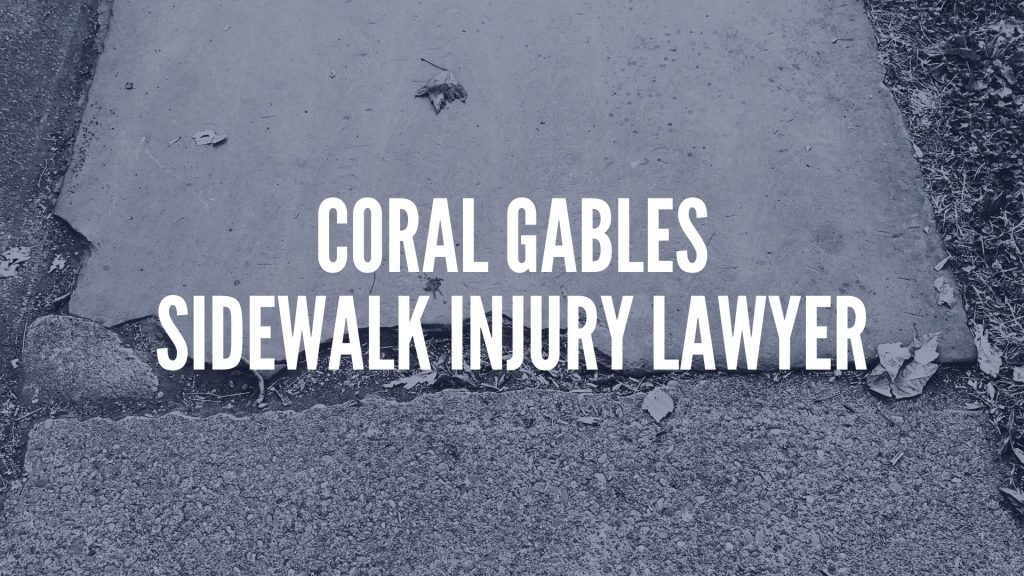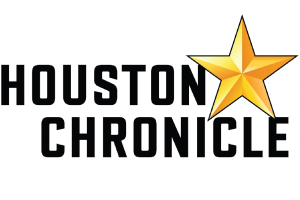Coral Gables Sidewalk Injury Lawyer | Miami Sidewalk Injury Attorney
Who Is Liable if You Trip and Fall Due to a Damaged Sidewalk in Coral Gables, FL?
Falling and getting injured due to a damaged sidewalk can lead to significant physical, emotional, and financial burdens. Determining who is liable for your injuries is crucial for recovering the compensation you deserve. At Flanagan & Bodenheimer Injury and Wrongful Death Law Firm, we are here to help you navigate the complexities of sidewalk injury cases. In this comprehensive guide, we will cover essential topics including understanding sidewalk maintenance responsibility in Coral Gables, the steps to take after sustaining an injury, common defenses for trip and fall accidents involving sidewalks, and the types of compensation you can obtain. Whether you’re dealing with the aftermath of an injury or looking to understand your legal options, we are committed to providing you with the information and support you need.
If you or a loved one has been injured due to a broken, cracked, or improperly maintained sidewalk in Miami, contact us at 305-638-4143 for a free consultation.

Understanding Sidewalk Maintenance Responsibility in Coral Gables
In many cities, the responsibility for sidewalk maintenance typically falls on the city and/or property owners. Local ordinances in Coral Gables place the responsibility for maintaining the sidewalk on the property owners adjacent to the sidewalk. This means that property owners must ensure that the sidewalks abutting their properties are safe and free from hazards such as cracks, uneven surfaces, or other defects. While the city is responsible for certain public infrastructure, in Coral Gables, the adjacent property owners bear the primary responsibility for sidewalk maintenance.
Common Causes of Damaged Sidewalks in South Florida
- Cracked and Uneven Surfaces: Cracked or uneven surfaces are a leading cause of sidewalk injuries in Florida. Over time, sidewalks can crack due to the warm climate, which causes expansion and contraction of materials. Additionally, Florida’s frequent rains can erode the ground beneath sidewalks, leading to uneven surfaces and tripping hazards.
- Poor Maintenance: Inadequate maintenance is a significant contributor to sidewalk injuries. Property owners in Coral Gables are responsible for ensuring sidewalks are safe. When maintenance is neglected, hazards such as debris, overgrown vegetation, and accumulated dirt can lead to slips, trips, and falls.
- Tree Roots: Tree roots are a common problem in Coral Gables, where lush vegetation and large trees are prevalent. These roots can cause sidewalks to lift and crack, creating uneven surfaces that pose tripping hazards. Regular inspection and maintenance are necessary to manage this issue.
- Weather Conditions: Florida’s weather conditions, including heavy rains, hurricanes, and tropical storms, significantly increase the risk of sidewalk injuries. Slippery surfaces from rain, mold, mildew, or debris from storms can cause pedestrians to lose their footing. Proper drainage and timely removal of storm debris are essential to prevent these accidents.
- Construction and Obstructions: Construction activities near sidewalks often lead to temporary hazards. Unmarked holes, debris, and equipment can create dangerous conditions for pedestrians. Additionally, obstructions like parked vehicles, bicycles, and trash cans can force pedestrians to navigate around them, increasing the risk of injury.
- Insufficient Lighting: Poor lighting can make it difficult for pedestrians to see hazards on the sidewalk, leading to trips and falls. Ensuring that sidewalks are well-lit, particularly in high-traffic areas and during nighttime, is crucial for pedestrian safety in Florida’s urban and suburban areas.
Steps To Take After Sustaining An Injury Due To A Damaged Sidewalk
A trip and fall injury due to a cracked or damaged sidewalk in Coral Gables, FL, can lead to significant physical, emotional, and financial burdens. Taking the appropriate steps immediately following the incident can help protect your rights and increase your chances of recovering fair compensation. If you or a loved one has been injured, contact Flanagan & Bodenheimer Injury and Wrongful Death Law Firm for a free consultation. Our experienced personal injury attorneys are dedicated to helping you navigate the complexities of your case and achieve the best possible outcome.
Assess Your Injuries & Seek Medical Attention
The first and most important step is to assess your injuries. If you are seriously hurt, call 911 or ask someone nearby to do so. Even if your injuries seem minor, it is still wise to seek medical attention as soon as possible. Some injuries may not be immediately apparent but can worsen over time.
Document the Scene
Once you have ensured your immediate safety, it is crucial to document the scene of the accident. This documentation will be vital evidence if you decide to file a personal injury claim. Here’s what you should do:
- Take Photos: Capture clear photographs of the cracked or damaged sidewalk from multiple angles. Include close-ups of the defect as well as wider shots that show the surrounding area.
- Note the Location: Record the exact location of the incident, including any nearby landmarks or addresses.
- Identify Witnesses: If there were any witnesses to your fall, obtain their contact information. Their testimonies could be valuable in supporting your claim.
Consult a Coral Gables Personal Injury Lawyer
Navigating the legal aspects of a trip and fall claim can be complex. Consulting with an experienced personal injury lawyer is highly recommended. Our attorneys can:
- Evaluate Your Case: Assess the details of your incident to determine if you have a valid claim.
- Gather Evidence: Help gather and preserve crucial evidence to support your case.
- Negotiate with Insurers: Handle communications and negotiations with insurance companies on your behalf.
- Represent You in Court: If necessary, file a lawsuit and represent you in court to seek fair compensation.
Common Defenses For Trip & Fall Accidents Involving Sidewalks
Comparative Negligence
One of the most common defenses in personal injury cases is comparative negligence. Under this argument, the liable party may claim that you were partially at fault for your injury. They might suggest:
- You Were Not Paying Attention: The defense could argue that you were distracted, perhaps by looking at your phone or talking to someone, and failed to notice the hazardous condition.
- Inappropriate Footwear: They might contend that your choice of footwear was unsuitable for walking, contributing to your fall. For instance, if you were wearing high heels or shoes with slippery soles, this argument might be used against you.
Florida follows the modified comparative negligence law found in 768.81, Florida Statutes:
(6) Greater percentage of fault. — In a negligence action to which this section applies, any party found to be greater than 50 percent at fault for his or her own harm may not recover any damages. This subsection does not apply to an action for damages for personal injury or wrongful death arising out of medical negligence pursuant to chapter 766.
This means your compensation can be reduced by the percentage of fault assigned to you. For example, if you are found to be 20% at fault, your compensation would be reduced by 20%. However, if you are found to be 51% negligent, then you will be awarded no compensation for your damages.
Notice of Hazard
Another defense you might face is the argument that the property owner was unaware of the hazardous condition and had no reasonable opportunity to repair it. This defense hinges on proving:
- Lack of Knowledge: The liable party could claim that they were not aware of the broken sidewalk before your accident. They might argue that the defect was recent and they had not received any complaints or noticed the issue themselves.
- Reasonable Time to Repair: Even if the hazard was known, the defense might assert that they did not have enough time to address it before your fall. For example, if the sidewalk cracked due to a recent event, such as a storm, they could argue that they were in the process of organizing repairs. Nevertheless, the owner may also have had a duty to warn of the danger.
Proving notice of hazard is often a key element in personal injury cases, and your attorney will need to gather evidence showing that the liable party knew or should have known about the dangerous condition.
Open and Obvious Doctrine
The open and obvious doctrine is a defense that claims the hazard was so apparent that you should have noticed and avoided it. This argument is based on the premise that:
- Visibility of Hazard: The defect in the sidewalk was clearly visible and could be easily seen by a reasonable person.
- Responsibility to Avoid: Given the obvious nature of the hazard, you should have taken steps to avoid it, such as walking around the damaged area or choosing a different path.
The open and obvious doctrine can be a challenging defense to overcome, but it is not insurmountable. Your attorney can counter this argument by demonstrating that the hazard was not as apparent as claimed or that there were mitigating circumstances, such as poor lighting or obstructions, which made it difficult to see and avoid the danger.
At Flanagan & Bodenheimer Injury and Wrongful Death Law Firm, we are committed to helping you navigate the complexities of your personal injury claim and fight for the compensation you deserve. If you or a loved one has been injured due to a broken sidewalk, contact us today for a free consultation. Our experienced attorneys will work diligently to protect your rights and achieve the best possible outcome for your case.
What Compensation Can I Obtain After a Trip & Fall Injury in Coral Gables?
When pursuing a personal injury lawsuit in Florida, you can seek several types of damages. These damages are categorized into economic, non-economic, and, in some cases, punitive damages.
Economic Damages
Economic damages compensate for the financial losses incurred due to the injury. They include:
- Medical Expenses: This covers the cost of medical treatment related to the injury, including hospital bills, doctor’s visits, physical therapy, prescription medications, and any future medical expenses.
- Lost Wages: If your injury caused you to miss work, you could claim compensation for the income lost during your recovery period. This also includes future lost earnings if the injury impacts your ability to work.
- Property Damage: If any personal property was damaged during the fall, such as clothing or electronics, you might be reimbursed for repair or replacement costs.
Non-Economic Damages
Non-economic damages compensate for the intangible losses that do not have a direct monetary value. These include:
- Pain and Suffering: This covers the physical pain and emotional distress caused by the injury.
- Loss of Enjoyment of Life: If the injury has significantly impacted your ability to enjoy daily activities or hobbies, you can seek compensation for this loss.
- Emotional Distress: Compensation for psychological impact, such as anxiety, depression, or post-traumatic stress disorder (PTSD), resulting from the accident.
Free Consultation With a Coral Gables Personal Injury Attorney

At Flanagan & Bodenheimer Injury and Wrongful Death Law Firm, we understand the intricacies involved in these cases and are committed to guiding you through the legal maze. Our experienced attorneys will work diligently to identify the liable party, gather crucial evidence, and build a robust case to secure the compensation you deserve for your injuries and losses.
If you or a loved one has been injured due to a damaged sidewalk, don’t navigate this journey alone. The legal process can be daunting, but with the right legal representation, you can confidently pursue justice and hold the responsible parties accountable.
Our law firm specializes in personal injury cases, including car accidents, truck accidents, motorcycle accidents, medical malpractice, cruise ship injuries, slip and fall accidents, negligent security, and wrongful death claims. Our experienced legal team is dedicated to serving clients throughout the state of Florida, including Miami, Hollywood, Fort Lauderdale, Aventura, Coral Gables, Kendall, Hialeah, Homestead, West Palm Beach, Orlando, Tampa, Jacksonville, and other surrounding areas.
Contact Flanagan & Bodenheimer Injury and Wrongful Death Law Firm at 305-638-4143 today for a free consultation. We are dedicated to providing personalized, compassionate, and effective legal support, ensuring that your rights are protected and your case is handled with the utmost care and professionalism.












